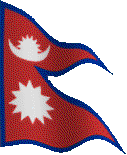|
Historic
Dugunagadhi draws growing
number of tourists (kh
11/01/2026)
Pay
Heed To History Or Perish,
by Avaya Shrestha (rn
31/10/2025)
Palpa
keeps alive 206-year-old
Bhagawati Jatra commemorating
Nepali victory over British
forces : The historical
festival born from Colonel
Ujir Singh Thapa’s battlefield
vow, commemorates Nepal’s
triumph at Jitgadhi Fort in
1815, by Madhab Aryal (kp
04/08/2025)
The
Unknown Faces Of Chandra
Shumsher, by Gautam
Banerjee (rn 11/07/2025)
Amar
Babu, or the terror of Durbar
High School : The Bengali
master’s punishments gave
scars, but his lessons shaped
generations of students in the
1930s and 1940s, by
Prawash Gautam (kp 28/06/2025)
Assassination
In Hanuman Dhoka, by
Gautam Banerjee (rn 23/05/2025)
Māsinya:
A History of Suppression and
Resilience Among Nepal's
Tamang Community : The term
Māsinya finds its roots in the
1854 Muluki Ain (National
Code) promulgated by the state
of Nepal during the Rana
regime, by Nabraj Lama
(rep 28/12/2024)
A
historical lifeline for
Nepal’s survival : The concept
of military diplomacy in Nepal
can be traced back to the 18th
century, by Sumitra Karki
(ae 29/10/2024)
The
royal roots of Central Zoo :
The story of how Juddha
Shumsher’s zoological garden
was born and evolved, by
Prawash Gautam (kp 20/07/2024)
The
allure of monumentalism : Elected versions of
tinpot tyrants are erecting structures of
self-aggrandisement across the country called
view towers!, by CK Lal (kp 10/04/2024)
Neither
side lost, both sides won : New angle on the old
question of who won the Sino-Nepal war of 1791,
by Axel Michaels (nt 01/03/2024)
No
tiger for breakfast : The Ranas used tiger
hunting to appease and renew their friendship
with the British in India, by Abhi Subedi
(kp 04/02/2024)
Remembering
The Nation's Unifier, by Buddhi Narayan
Shrestha (rn 12/01/2024), Nepal’s
geopolitical challenges and Prithvi Narayan
Shah’s teachings, by Kamal Dev Bhattarai (ae
12/01/2024)
|

